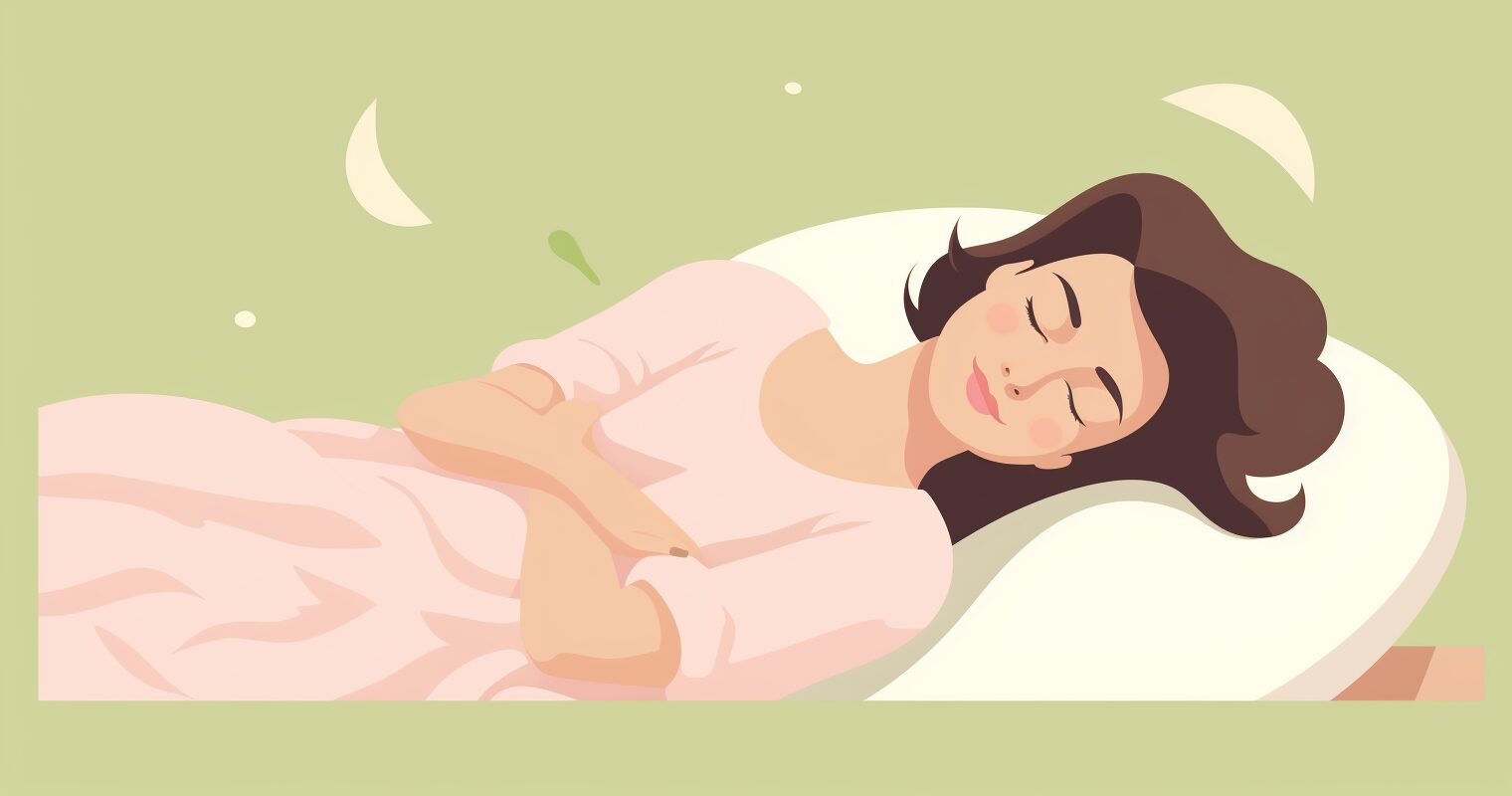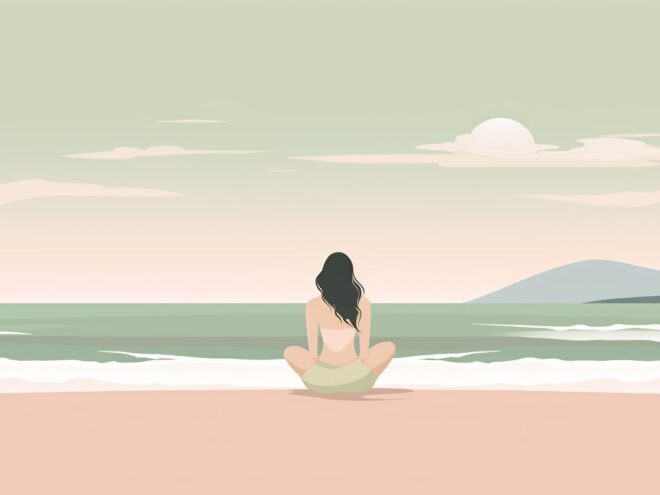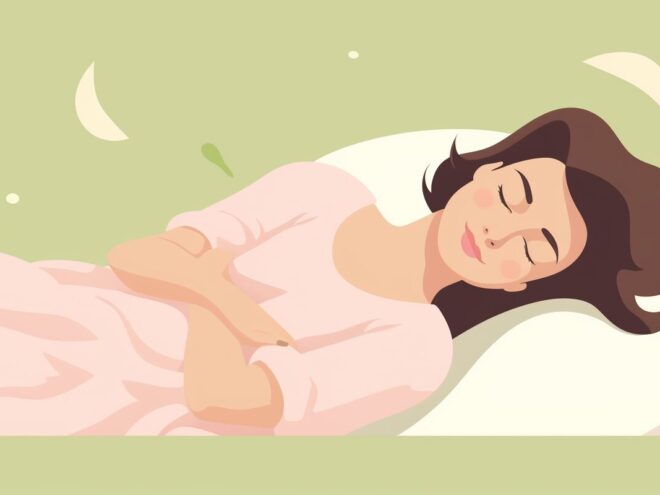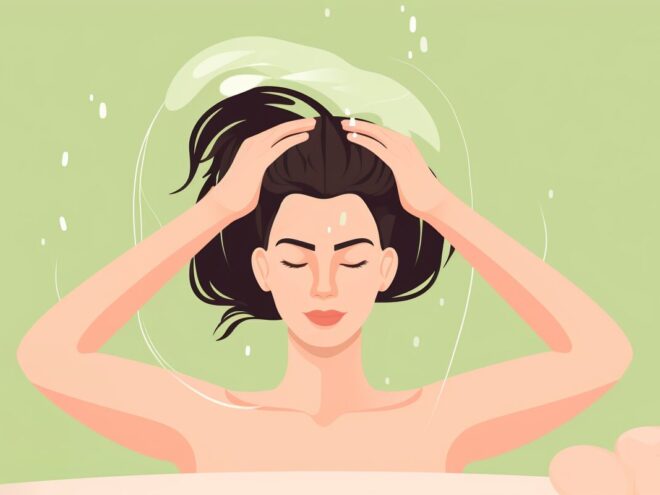Hair • 07/10/2024
Is it Bad to Sleep With Wet Hair? Let’s Find Out

Revivalist is a reader-supported endeavor and our posts may contain affiliate links. When you buy through links on our site, we may earn an affiliate commission.
We’ve all been there. You just finished a late-night shower, you’re exhausted, and the last thing you want to do is wait for your locks to dry. “Is it bad to sleep with wet hair?” is a common question and one that’s worth exploring.
6 Things to Consider When Sleeping With Wet Hair
Dermatologists and hair specialists say sleeping with wet hair isn’t inherently dangerous but can have unintended consequences.
- Fungal Infection
One of the more concerning potential issues is the risk of fungal infections. Dampness provides a perfect environment for yeast and bacteria to thrive on your scalp. While your pillow might seem cozy, it can also become a breeding ground for these microorganisms if it’s frequently exposed to moisture.
- Weakened Hair
Wet hair is a lot more fragile than dry hair. When your mane is damp, the shaft swells, and the outer layer — or the cuticle — lifts, making it more susceptible to damage. Tossing and turning on your pillow can cause breakage and split ends. Wet locks are more prone to traction, which can lead to your strands weakening over time.
- Increased Hair Loss
Though not a direct cause of hair loss, the weakened state of wet tresses can contribute to increased breakage and shedding. This phenomenon can exacerbate hair loss in individuals already prone to shedding or those with underlying conditions such as telogen effluvium.
- Compromised Scalp Health
Sleeping with wet hair can also affect the overall health of your scalp. Prolonged moisture on the scalp can disrupt the natural balance of oils and lead to the overproduction of sebum, creating an environment conducive to dandruff and scalp acne. Additionally, the combination of warmth and moisture can lead to irritation and inflammation, potentially causing discomfort and itchiness.
- Comfort and Sleep Quality
Beyond the potential health issues, there’s the simple matter of comfort. Sleeping with wet hair can be pretty uncomfortable. The moisture can make your pillow cold and potentially disrupt your sleep. You might also wake up to knots, tangles and an unruly mane that takes extra time to tame in the morning.
- Hair Styling and Manageability
Waking up with wet hair can also affect your crowning glory’s manageability and styling the next day. Wet locks dry in random patterns, leading to unpredictable waves or kinks. This inconvenience can make morning styling more time-consuming and challenging, especially if you have a specific look you want to achieve.
What About the Cold?
There’s an old wives’ tale that sleeping with wet hair can make you catch a cold. While this is not entirely true — colds are caused by viruses, not cold or damp conditions — sleeping with a wet mane might make you feel colder, potentially affecting your overall comfort and sleep quality. While wet hair doesn’t cause colds, being chilled can lower your immune response, making you slightly more susceptible to infections.
Some believe that sleeping with wet tresses can lead to severe health conditions like pneumonia. This belief is a myth. Bacterial or viral infections cause pneumonia, and no scientific evidence links it to sleeping with wet hair.
7 Practical Tips for Sleeping With Wet Hair
If you still prefer to wash your hair at night, there are ways to minimize potential downsides.
- Use a Silk Pillowcase
Silk Pillowcases help lessen hair tangles while you sleep. They are gentler on your locks and can help reduce friction.
- Dry as Much as Possible
Try to towel dry your hair thoroughly before going to bed. A quick blast with a blow dryer on a cool setting can also help.
- Try a Loose Braid
Putting your hair in a loose braid can help reduce tangling and breakage.
- Use Leave-On Conditioner
This product can help protect your locks and reduce damage while you sleep.
- Apply a Hair Mask
Before bed, applying a lightweight, leave-in hair mask can provide extra moisture and protection, keeping your tresses nourished overnight.
- Sleep in a Microfiber Towel
Specially designed microfiber towels can be wrapped around your hair to absorb excess moisture without causing friction or breakage.
- Elevate your Head
Sleeping with your head slightly elevated can help prevent scalp moisture from transferring to your pillow.
Personal Experiences
Some people sleep with wet hair regularly and don’t experience any significant problems. For some, it’s a matter of convenience and habit. It’s essential to understand that haircare is very personal, and what works for one might not work for another. Listening to your body and observing your hair’s response can be the best guide.
Making the Choice
Ultimately, whether it’s bad to sleep with wet locks depends on your circumstances and preferences. While there are some potential risks, they’re not universally experienced by everyone. If you find that sleeping with wet hair leads to issues like increased breakage, scalp discomfort or just general inconvenience, it might be worth adjusting your routine.
However, if you’ve never had a problem, there’s no urgent reason to change your habits. The key is to find a balance that works for you. Try alternating between drying your mane before bed and letting it air dry occasionally to see what feels best.
Finding Your Routine
So, is it bad to sleep with wet hair? The answer isn’t black and white. Understanding the potential risks and taking steps to mitigate or minimize them can help you make an informed decision that suits your lifestyle and hair type.
At the end of the day, the choice is yours. Listen to your hair, experiment with different routines, and find what makes you feel the most comfortable. Remember, your crowning glory is an essential part of you, and taking care of it should feel empowering, not burdensome.
Is it Bad to Sleep With Wet Hair? Final Word
Sleeping with wet locks isn’t the most harmful thing you can do, but it has drawbacks. While some may find that sleeping with damp tresses poses no problems, others might encounter issues like hair breakage, scalp issues or overall discomfort. The best approach is to try different methods and make the best choice for you. If you do choose to sleep with wet hair, taking preventive measures can help mitigate the risks.
Subscribe to Our Weekly Newsletter
We would love to connect deeper with you!


